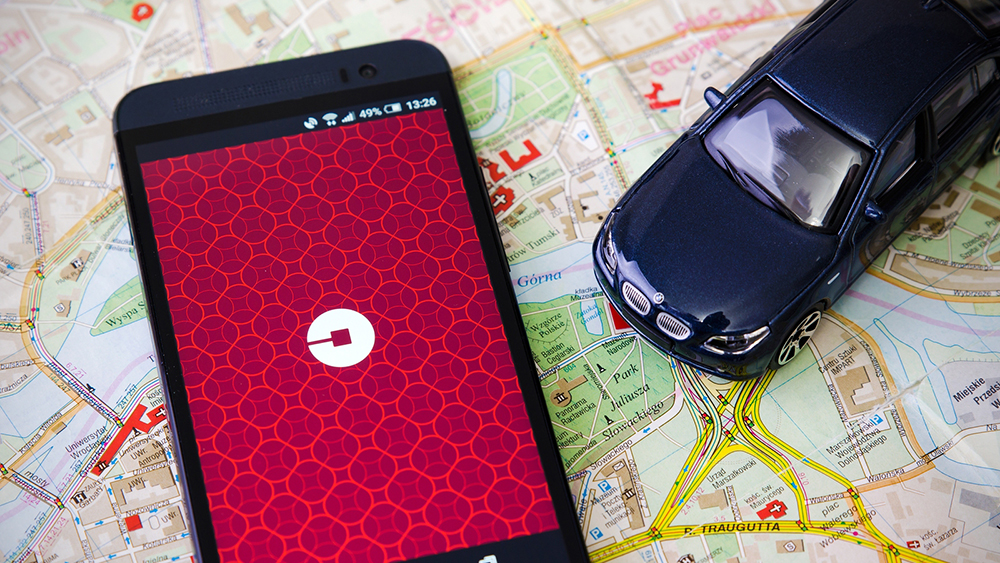Uber denied licence to operate in London
Ride-hailing company has just 21 days to appeal the decision


Uber has lost its license to operate in London once again, with authorities saying the company was not a "fit and proper operator", following a two-month extension granted in September.
Transport for London (TfL) originally stripped the company of its London license in 2017 after it discovered more than 14,000 trips were completed by unlicensed and uninsured operators. Uber then appealed and won a temporary reprieve.
While the transport authority recognised that "Uber has made a number of positive changes and improvements", including working in a "transparent and productive manner", it wasn't enough to satisfy officials.
Uber had demonstrated "a pattern of failures" involving passenger safety, something that TfL was unwilling to risk happening again if the company was allowed to continue to operate within the capital.
"Safety is our absolute top priority," said Helen Chapman, director of licensing, regulation and charging at TfL. "While we recognise Uber has made improvements, it is unacceptable that Uber has allowed passengers to get into minicabs with drivers who are potentially unlicensed and uninsured.
"It is clearly concerning that these issues arose, but it is also concerning that we cannot be confident that similar issues won't happen again in future," she added.
Uber now has 21 days to appeal the decision and will be able to continue to operate during that time.
Sign up today and you will receive a free copy of our Future Focus 2025 report - the leading guidance on AI, cybersecurity and other IT challenges as per 700+ senior executives
The appeal process is likely to span several months, although the eventual decision is likely to be the final say in a long-running dispute.
"TfL's decision not to renew Uber's licence in London is extraordinary and wrong, and we will appeal," said Jamie Heywood, regional general manager for northern and eastern Europe at Uber, speaking to IT Pro.
"We have fundamentally changed our business over the last two years and are setting the standard on safety," he added. "TfL found us to be a fit and proper operator just two months ago, and we continue to go above and beyond.
"On behalf of the 3.5 million riders and 45,000 licensed drivers who depend on Uber in London, we will continue to operate as normal and will do everything we can to work with TfL to resolve this situation."
To remedy the issue regarding driver identification, the company has carried out an audit of every one of its London drivers and will soon introduce a "facial matching" system which it believes is "a first in London taxi and private hire", the company said.
Gartner senior research director Pedro Pacheco told IT Pro that although the decision has been framed as a setback for Uber, we should instead view it as a win for passenger safety.
"This decision shows the growing concerns regulators have about cybersecurity in several areas of mobility," said Pacheco. "We should see it as a trend that could contribute to making passengers less exposed to risk when using new mobility services".
"The fact this situation is happening in London creates a lot of visibility. As such, I believe other cities taking steps to regulate new mobility models will analyse this point and deliberate accordingly on the legislative side."

Connor Jones has been at the forefront of global cyber security news coverage for the past few years, breaking developments on major stories such as LockBit’s ransomware attack on Royal Mail International, and many others. He has also made sporadic appearances on the ITPro Podcast discussing topics from home desk setups all the way to hacking systems using prosthetic limbs. He has a master’s degree in Magazine Journalism from the University of Sheffield, and has previously written for the likes of Red Bull Esports and UNILAD tech during his career that started in 2015.
-
 Cloudflare is cracking down on AI web scrapers
Cloudflare is cracking down on AI web scrapersNews Cloudflare CEO Matthew Prince said AI companies have been "scraping content without limits" - now the company is cracking down.
-
 Swiss government data published following supply chain attack – here’s what we know about the culprits
Swiss government data published following supply chain attack – here’s what we know about the culpritsNews Radix, a non-profit organization in the health promotion sector, supplies a number of federal offices, whose data has apparently been accessed.
-
 Intel makes high-level hires while factory workers are warned of layoffs
Intel makes high-level hires while factory workers are warned of layoffsNews The company is appointing four senior executives as part of efforts to refocus on engineering and customer relationships
-
 UiPath names Simon Pettit as new AVP for UK and Ireland
UiPath names Simon Pettit as new AVP for UK and IrelandNews The seasoned leader will spearhead region-specific transformation projects as UiPath looks to drive operational growth and customer engagement
-
 How to empower employees to accelerate emissions reduction
How to empower employees to accelerate emissions reductionin depth With ICT accounting for as much as 3% of global carbon emissions, the same as aviation, the industry needs to increase emissions reduction
-
 Worldwide IT spending to grow 4.3% in 2023, with no significant AI impact
Worldwide IT spending to grow 4.3% in 2023, with no significant AI impactNews Spending patterns have changed as companies take an inward focus
-
 Report: Female tech workers disproportionately affected by industry layoffs
Report: Female tech workers disproportionately affected by industry layoffsNews Layoffs continue to strike companies throughout the tech industry, with data showing females in both the UK and US are bearing the brunt of them more so than males
-
 How can small businesses cope with inflation?
How can small businesses cope with inflation?Tutorial With high inflation increasing the cost of doing business, how can small businesses weather the storm?
-
 How to deal with inflation while undergoing digital transformation
How to deal with inflation while undergoing digital transformationIn-depth How can organizations stave off inflation while attempting to grow by digitally transforming their businesses?
-
 How businesses can use technology to fight inflation
How businesses can use technology to fight inflationTUTORIAL While technology can’t provide all the answers to fight rising inflation, it can help ease the pain on businesses in the long term